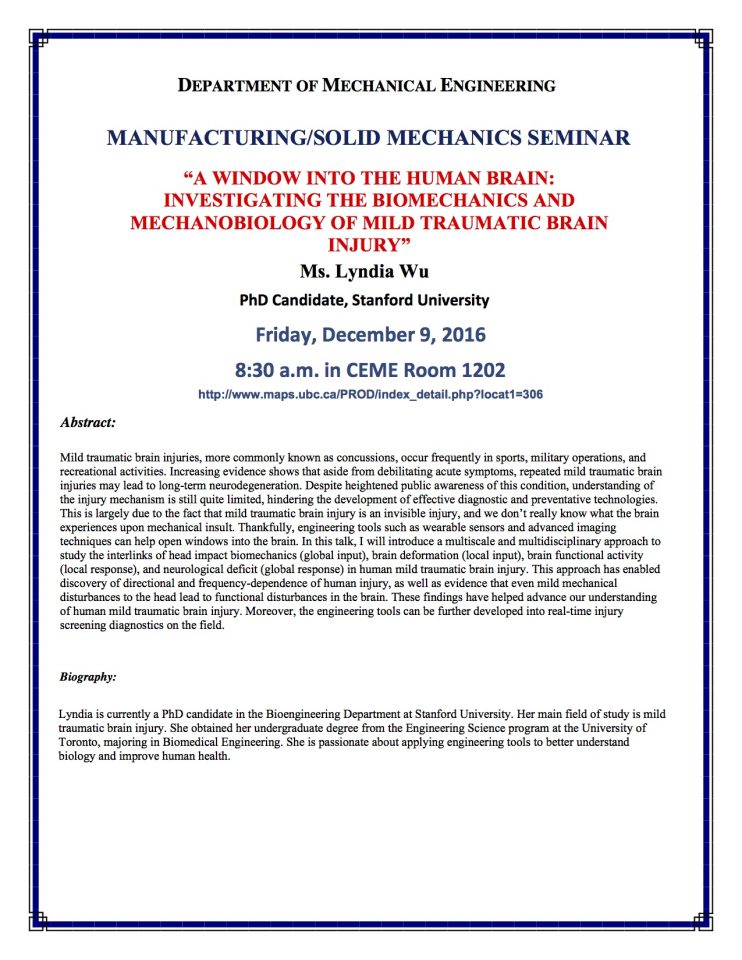The 4th Manufacturing/Solid Mechanics Seminar:
A Window Into the Human Brain: Investigating the Biomechanics and Mechanobiology of Mild Traumatic Brain Injury
Friday, December 9, 2016 at 08:30AM at CEME Room 1202
Everyone is welcome!
Speaker: Ms. Lyndia Wu, PhD candidate, Stanford University
Abstract:
Mild traumatic brain injuries, more commonly known as concussions, occur frequently in sports, military operations, and recreational activities. Increasing evidence shows that aside from debilitating acute symptoms, repeated mild traumatic brain injuries may lead to long-term neurodegeneration. Despite heightened public awareness of this condition, understanding of the injury mechanism is still quite limited, hindering the development of effective diagnostic and preventative technologies. This is largely due to the fact that mild traumatic brain injury is an invisible injury, and we don’t really know what the brain experiences upon mechanical insult. Thankfully, engineering tools such as wearable sensors and advanced imaging techniques can help open windows into the brain. In this talk, I will introduce a multiscale and multidisciplinary approach to study the interlinks of head impact biomechanics (global input), brain deformation (local input), brain functional activity (local response), and neurological deficit (global response) in human mild traumatic brain injury. This approach has enabled discovery of directional and frequency-dependence of human injury, as well as evidence that even mild mechanical disturbances to the head lead to functional disturbances in the brain. These findings have helped advance our understanding of human mild traumatic brain injury. Moreover, the engineering tools can be further developed into real-time injury screening diagnostics on the field.
Biography:
Lyndia is currently a PhD candidate in the Bioengineering Department at Stanford University. Her main field of study is mild traumatic brain injury. She obtained her undergraduate degree from the Engineering Science program at the University of Toronto, majoring in Biomedical Engineering. She is passionate about applying engineering tools to better understand biology and improve human health.
